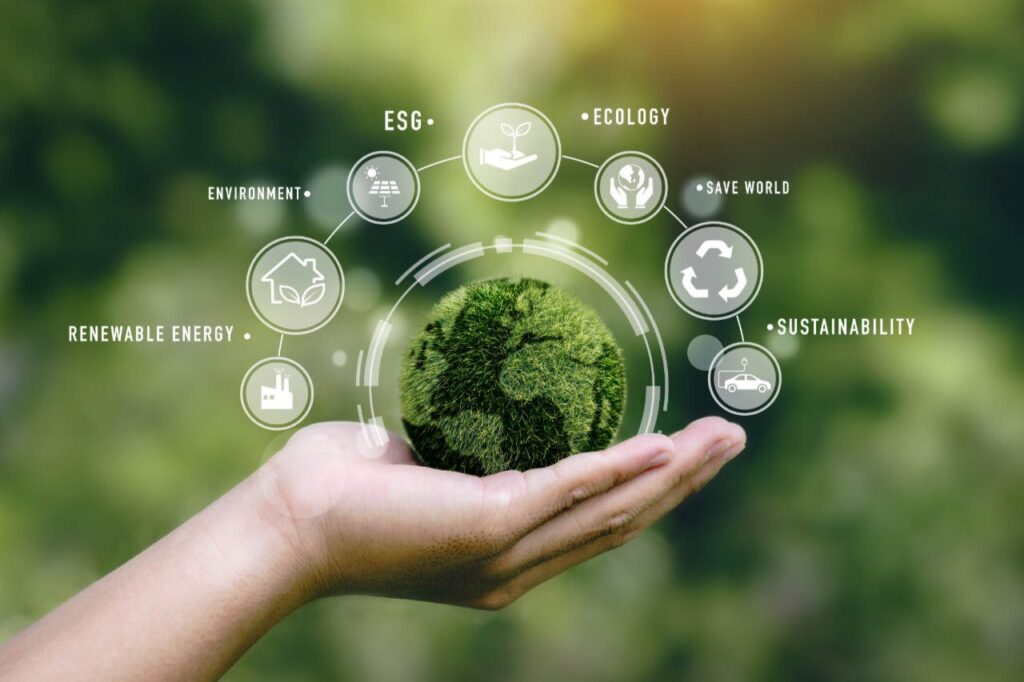Today, running a business sustainably is something that’s required, not optional. With ecological certifications, companies can verify their environmental actions and make sure their operations are more reliable. Getting certified helps to limit waste and meet your clients’ needs.
This blog post looks into the process of getting certified in sustainability and explains why it’s beneficial for companies to become more responsible and competitive.
What Is a Business Certification in Sustainability?
Earning a business certification in sustainability means a company is known to have met particular environmental requirements. They include lessening carbon emissions, handling waste, or making energy use more efficient.
Sustainability certifications are not designed the same for all businesses. For some, being environmentally sustainable is the most important thing, but other companies include extra criteria such as social responsibility and where products come from. The main objectives of ecological certifications are to protect nature, use resources efficiently, and notice improvements as time passes.
The Practical Side: Why Get Certified?
Let’s look at some main benefits businesses experience by getting certified in sustainability:
-
Operational Efficiency
In doing a sustainability audit, it is common to see ways in which energy or materials are being wasted, extra packages are used, or technology is not up to date. Addressing these challenges makes a company more sustainable and also cuts costs. Many companies notice that meeting the suggestions from eco-consultants straightaway saves them money.
-
Access to Contracts
Both government organizations and large companies are increasingly requesting proof that companies follow sustainable practices. If a business doesn’t have an ecological certification, it may not be considered during the bidding process.
-
Customer Trust
Nowadays, shoppers are much more intelligent about greenwashing. People check information from third parties to confirm if a company’s environmental statements are real. Having valid certifications benefits small companies by giving them a stronger image and clearer communication in a tough market.
What Does the Certification Process Look Like?
The objects certified may differ, but the main steps in gaining an ecological certificate are easy to understand.
Step 1: Initial Review
An initial assessment sets out where the business is at present. The process can be carried out within your organization, or you can use eco-consultant services that give impartial assessments and point out where there is room for improvement.
Step 2: Action Plan
The company uses the review to design a practical plan. Solutions may include choosing green energy, using less water, controlling waste responsibly, or updating the way goods are bought.
Step 3: Implementation
The plan is carried out by the company. It doesn’t always happen fast, but seeing the results is important. To meet the requirements of many certifying bodies, you may be asked for documentation of energy, waste, or supplier activity.
Step 4: Verification
An outside organization checks the submitted data to see if it follows the rules of the certification.
Step 5: Recognition
Upon meeting all the steps, a business can be certified. Usually, certification includes rights to use a mark or badge during marketing, when bidding, or on product packaging.
Do You Need an Eco Consultant?
Many companies do not have enough training on their own to successfully complete a certification. Here is where eco-consultant services become useful. Consultants provide services to businesses.
- Learn which certification standards apply to your work.
- Perform audits of your environmental performance.
- Make plans that help the company save money while improving.
- Follow all the activity and prepare the necessary documents for verification.
For plenty of small businesses, hiring a consultant helps them move from having good ideas to actually getting certified.
Common Misunderstandings About Certification
-
“It’s Only for Large Companies”
It’s not that only big companies can get these certifications; there are also options available for small businesses. A lot of frameworks have been created with SMEs in mind. Actually, small firms find it simpler to adjust and make real improvements promptly.
-
“It’s All About Carbon”
Energy use, the use of water, selections of materials, biodiversity, and other factors are included in most ecological certifications, even though carbon reduction gets most of the attention. Businesses are granted certification by achieving progress in aspects most important for their company.
-
“Once You’re Certified, You’re Done”
Sustainability is something we work on over time. Many certifications come with a rule that they must be updated periodically through audit or review. As a result, businesses keep advancing and do not see certification as a single accomplishment.
Small Steps Can Lead to Big Change
What makes certification in sustainability so encouraging is that it supports ongoing improvement. You don’t have to be perfectly prepared before launching a business. Changes such as insulating your home, switching from single-use plastics, or using energy-friendly light bulbs can get you started.
In Conclusion
Checking boxes isn’t all that ecological certifications do; they encourage companies to work toward actual environmental achievements. Businesses can save money, reach new clients, and maintain confidence with stakeholders if they use eco-consulting and earn business certifications.
With sustainability becoming more important to company success, having ecological certification isn’t only a good action—it’s also a smart business move.


